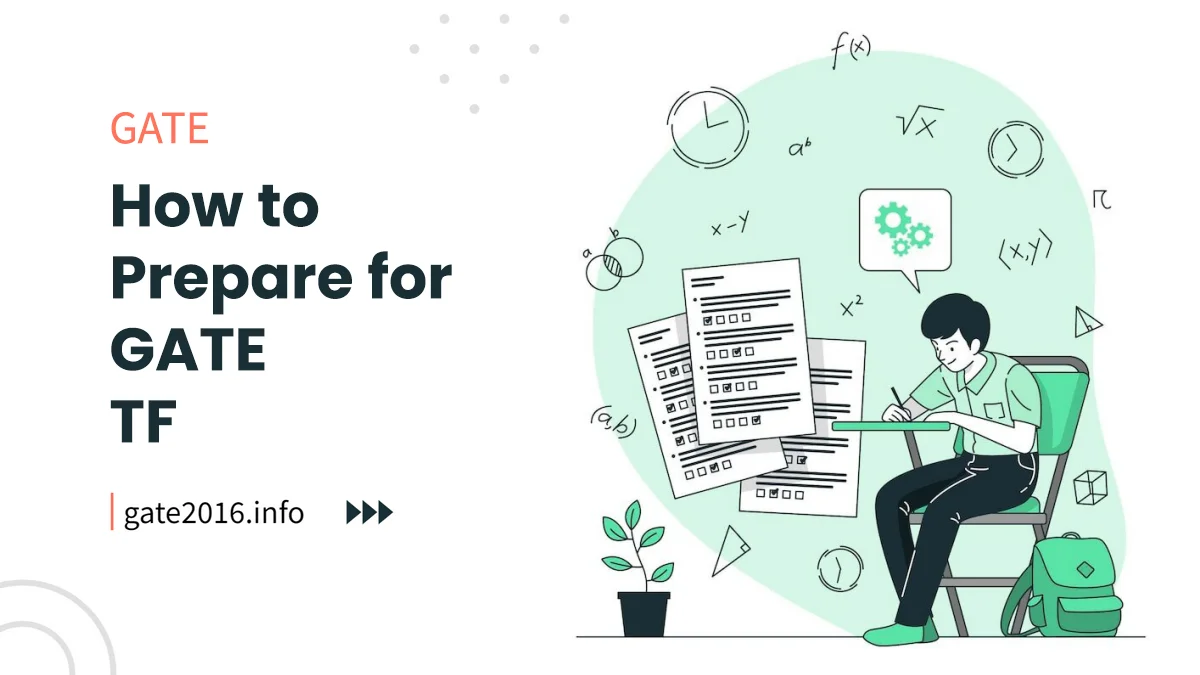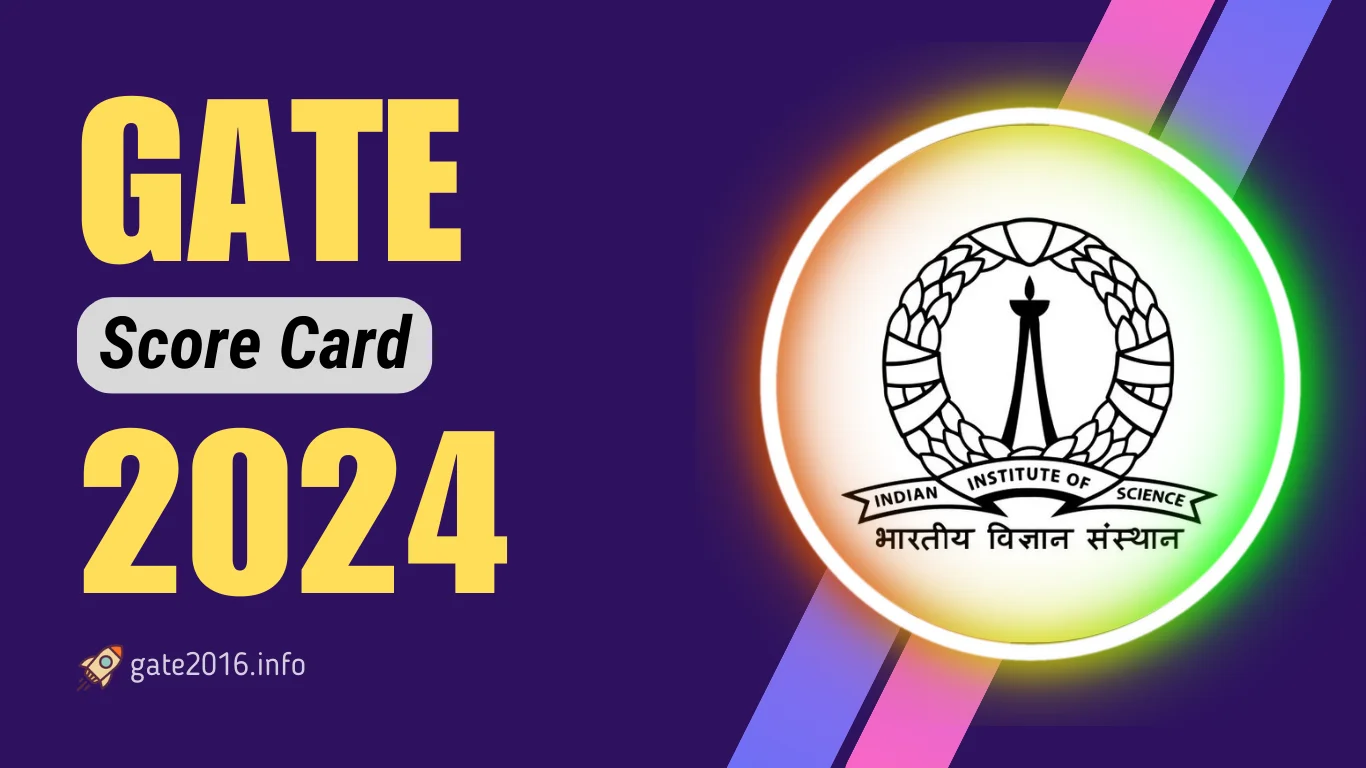Advertisements
Ratings
 GATE 2024 TF Preparation – The Graduate Aptitude Test in Engineering (GATE) is a highly competitive examination that serves as a pathway for aspirants aiming to pursue postgraduate programs in Textile Engineering and Fibre Science.
GATE 2024 TF Preparation – The Graduate Aptitude Test in Engineering (GATE) is a highly competitive examination that serves as a pathway for aspirants aiming to pursue postgraduate programs in Textile Engineering and Fibre Science.
Excelling in the GATE Textile Engineering and Fibre Science exam requires a systematic and dedicated approach.
This comprehensive guide aims to provide aspiring candidates in the field of textiles with a structured roadmap for effective GATE preparation.
Contents
- 1. Introduction to GATE Textile Engineering and Fibre Science
- 2. GATE Textile Engineering and Fibre Science Syllabus Overview
- 3. Developing a Structured Study Plan
- 4. Selection of Study Materials
- 5. Mastering Core Textile Concepts
- 6. Problem-Solving Practice
- 7. Reviewing Previous Years’ Question Papers
- 8. Taking Mock Tests
- 9. Effective Time Management Strategies
- 10. Implementing Revision Techniques
- 11. Staying Informed with Textile Industry Trends
- 12. Managing Exam Stress
- 13. Final Weeks’ Preparation Strategy
- 14. Approaching Exam Day
- 15. Post-Exam Analysis and Next Steps
- Conclusion: Excelling in GATE Textile Engineering and Fibre Science
- Additional Resources and References
- GATE Textile Engineering and Fibre Science Guidance
- GATE Textile Engineering and Fibre Science Preparation FAQs
- GATE Total Information & Guidance
1. Introduction to GATE Textile Engineering and Fibre Science
The GATE Textile Engineering and Fibre Science exam assesses candidates’ understanding of fundamental concepts in textiles, fibres, fabric manufacturing, and textile processes.
It is a stepping stone to advanced studies and rewarding career opportunities in the textile and apparel industry.
2. GATE Textile Engineering and Fibre Science Syllabus Overview
A clear understanding of the GATE Textile Engineering and Fibre Science syllabus is essential for focused preparation.
Let’s break down the syllabus into subjects and key topics:
Table 1: GATE Textile Engineering and Fibre Science Syllabus Breakdown
| Subject | Key Topics |
|---|---|
| Textile Fibres | Classification, properties, testing of fibres |
| Yarn Manufacturing | Spinning systems, drafting, twisting, winding |
| Fabric Manufacturing | Weaving, knitting, non-woven fabric production |
| Textile Testing | Physical and chemical testing of textiles |
| Chemical Processing | Dyeing, printing, finishing processes |
| Quality Evaluation | Quality control, quality assurance, textile standards |
3. Developing a Structured Study Plan
A well-structured study plan is the foundation of successful preparation:
- Customized Schedule: Tailor the plan according to your strengths and weaknesses.
- Time Allocation: Allocate dedicated time for each subject based on its weightage.
Table 2: Sample Study Plan
| Week | Subjects/Topics | Time Allocation |
|---|---|---|
| 1-2 | Textile Fibres | 12 hours/week |
| 3-4 | Yarn Manufacturing | 10 hours/week |
| 5-6 | Fabric Manufacturing | 10 hours/week |
| 7-8 | Textile Testing | 8 hours/week |
| 9-10 | Chemical Processing | 12 hours/week |
| 11-12 | Quality Evaluation | 8 hours/week |
4. Selection of Study Materials
Choosing the right study materials is crucial for comprehensive learning:
Table 3: Recommended Study Resources
| Subject | Books | Online Resources |
|---|---|---|
| Textile Fibres | “Introduction to Textiles” by Sara J. Kadolph | NPTEL’s Textile Engineering Course |
| Yarn Manufacturing | “Yarn Manufacturing Engineering” by P.R. Lord and M.J. Philippe | Coursera’s Textile Technology Courses |
| Fabric Manufacturing | “Textile Technology and Design: From Interior Space to Outer Space” by Deborah Schneiderman and Alexa Griffith Winton | edX’s Fabric Production and Design Courses |
| Textile Testing | “Handbook of Textile Testing and Quality Control” by Elliott and Alagirusamy | YouTube’s Textile Testing Tutorials |
| Chemical Processing | “Principles of Textile Finishing” by Asim Kumar Roy Choudhury | NPTEL’s Chemical Processing in Textiles |
| Quality Evaluation | “Total Quality Management in Textiles” by Subrata Dasgupta | Quality Assurance in Textiles (eBook) |
5. Mastering Core Textile Concepts
Developing a strong foundation in core textile concepts is essential:
- Textile Fibres: Understand the classification, properties, and testing of different fibres.
- Yarn Manufacturing: Learn about spinning systems, drafting, twisting, and winding processes.
- Fabric Manufacturing: Grasp the techniques involved in weaving, knitting, and non-woven fabric production.
- Textile Testing: Comprehend physical and chemical testing methods for textiles.
- Chemical Processing: Familiarize yourself with dyeing, printing, and finishing processes.
- Quality Evaluation: Learn about quality control, assurance, and adherence to textile standards.
6. Problem-Solving Practice
Practicing problems enhances your problem-solving skills:
- Textile Fibres: Solve problems related to fibre properties and testing methods.
- Yarn Manufacturing: Practice problems on drafting, twisting, and winding calculations.
- Fabric Manufacturing: Solve problems involving fabric construction techniques.
- Textile Testing: Work on problems related to textile testing procedures and analysis.
- Chemical Processing: Practice problems on dyeing recipes, printing methods, and finishing techniques.
- Quality Evaluation: Solve problems on quality control measures and assurance processes.
7. Reviewing Previous Years’ Question Papers
Solving previous GATE Textile Engineering and Fibre Science papers provides valuable insights:
Table 4: Benefits of Solving Previous Years’ Papers
| Benefit | Description |
|---|---|
| Identify Question Patterns | Recognize common question formats |
| Enhance Time Management | Practice managing time effectively |
| Understand Exam Difficulty | Gauge the difficulty level of questions |
| Self-Assessment | Evaluate your preparedness and progress |
8. Taking Mock Tests
Simulating exam conditions through mock tests is essential:
Table 5: Benefits of Taking Mock Tests
| Benefit | Description |
|---|---|
| Simulate Exam Environment | Replicate real exam conditions |
| Improve Time Management | Enhance time allocation skills |
| Boost Confidence | Build confidence before the exam |
| Identify Weak Areas | Identify areas needing more focus |
9. Effective Time Management Strategies
Efficient time management during the exam is crucial:
Table 6: Time Management Strategy
| Section | Recommended Time Allocation |
|---|---|
| General Aptitude | 15 minutes |
| Technical Sections | 75 minutes each |
10. Implementing Revision Techniques
Regular revision is vital for retaining knowledge:
- Revision Schedule: Allocate time for revisiting crucial topics.
- Concise Notes: Create summary notes and flashcards for quick review.
11. Staying Informed with Textile Industry Trends
Stay updated with the latest advancements in the textile industry:
- Follow Textile Journals: Subscribe to leading textile journals and publications.
- Attend Industry Conferences: Participate in webinars and conferences to learn about emerging trends.
12. Managing Exam Stress
Effective stress management is pivotal:
- Relaxation Techniques: Practice meditation, deep breathing, and relaxation exercises.
- Balanced Routine: Incorporate physical exercise, healthy eating, and breaks into your routine.
13. Final Weeks’ Preparation Strategy
In the final weeks, focus on intensive revision of key concepts:
- Focused Revision: Allocate more time to challenging topics and complex problems.
- Additional Mock Tests: Take extra mock tests to fine-tune your preparation.
14. Approaching Exam Day
Stay composed and approach the exam day with confidence:
- Read Instructions Carefully: Understand question patterns and instructions clearly.
- Effective Time Allocation: Allocate time wisely based on question weightage.
15. Post-Exam Analysis and Next Steps
Evaluate your performance and plan your next steps:
- Performance Analysis: Identify strengths and areas for improvement.
- Future Planning: Decide whether to pursue advanced studies or explore career opportunities in Textile Engineering.
Conclusion: Excelling in GATE Textile Engineering and Fibre Science
By following the comprehensive strategies and guidelines presented in this article, aspiring textile engineers can establish a robust preparation strategy for the GATE Textile Engineering and Fibre Science exam.
This approach will substantially increase their prospects of achieving exceptional results in the examination and contributing to the dynamic field of textiles and fibre science.
Additional Resources and References
Explore the recommended textbooks, online courses, textile associations, and practice papers mentioned in this guide for additional resources and references.
These resources will further enrich your understanding and preparation for the GATE Textile Engineering and Fibre Science exam.
GATE Textile Engineering and Fibre Science Guidance
- How to Prepare for GATE Textile Engineering and Fibre Science: A Comprehensive Guide
- GATE TF Syllabus 2025: Textile Engineering & Fibre Science
- GATE TF Previous Year Solved Papers – (2023-2007)
GATE Textile Engineering and Fibre Science Preparation FAQs
What is GATE Textile Engineering and Fibre Science (TF)?
GATE TF is an examination conducted by the Indian Institute of Technology (IIT) for admission into postgraduate programs in Textile Engineering and Fibre Science and related fields.
It assesses candidates' knowledge and understanding of textile engineering, fibre science, and related concepts.
What are the important subjects to focus on for GATE TF preparation?
Key subjects to focus on include textile fiber, yarn manufacture, fabric manufacture, textile testing and quality control, textile chemical processing, and textile machinery.
The GATE TF syllabus covers a wide range of topics in textile engineering and fibre science.
How should I prepare for the GATE TF exam?
Effective preparation involves creating a study plan based on the GATE syllabus. Use standard textbooks, reference materials, and online resources for each subject.
Practice solving previous years' question papers and mock tests to become familiar with the exam pattern and improve your problem-solving skills. Focus on practical applications and textile testing techniques.
Are there any recommended books or resources for GATE Textile Engineering and Fibre Science preparation?
Yes, some recommended books and resources include:
- 'Textile Fiber Fundamentals' by George E. Booth and Lawrence E. Booth
- 'Textile Preparation and Dyeing' by Peter J. Hauser
- 'Textile Testing and Analysis' by Billie J. Collier and Phyllis G. Tortora
- 'Textile Chemical Processing: An Introduction' by D. R. K. Subramanian
- Online courses and lecture videos from reputable institutions and platforms like Coursera and edX.
What is the exam pattern for GATE Textile Engineering and Fibre Science, and how should I approach it?
GATE TF typically consists of multiple-choice questions, multiple-select questions, and numerical answer type questions.
Questions cover various aspects of textile engineering, fibre science, and related topics.
Start by answering questions you are confident about and manage your time efficiently. For numerical answer type questions, ensure precision in your answers.
A strong understanding of textile engineering concepts, textile processes, and textile machinery is essential for success in the exam.
Recent Posts
- AAI Through GATE 2024 – JE (Junior Executive)
- M Tech and MS Programs Through GATE and GRE: Navigating Postgraduate Options
- Job Opportunities After GATE 2024 in India: What You Didn’t Know!
- BSPHCL Through GATE 2024 – 40 AEE
Related Tags
Gate textile engineering and fibre science preparation pdf free download, Gate textile engineering and fibre science preparation book pdf, Gate textile engineering and fibre science preparation book, gate textile study material pdf, textile gate solved papers pdf, gate textile syllabus 2024, gate textile engineering solved papers, gate 2024 textile engineering question paper
| GATE (Reasoning & Aptitude & Maths) Books |
| GATE Guide Books |
GATE Total Information & Guidance
Click below given links to get further information.







